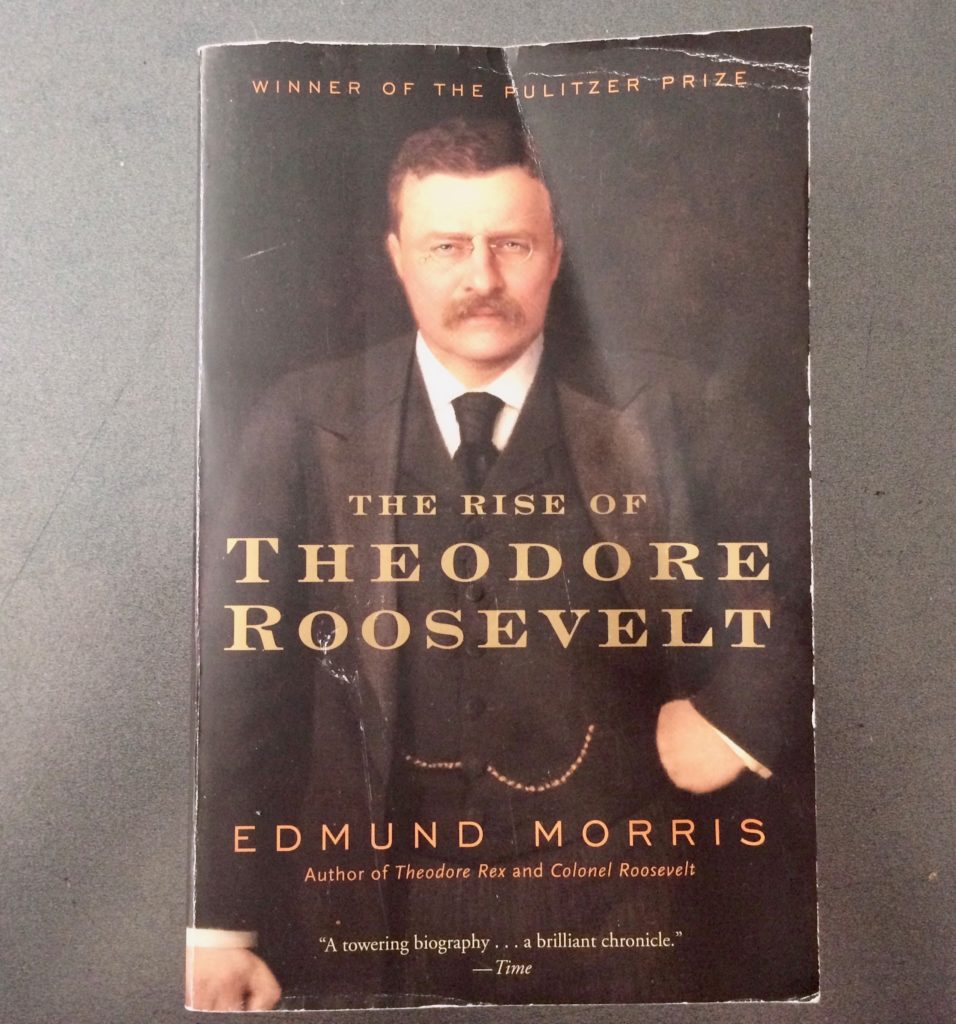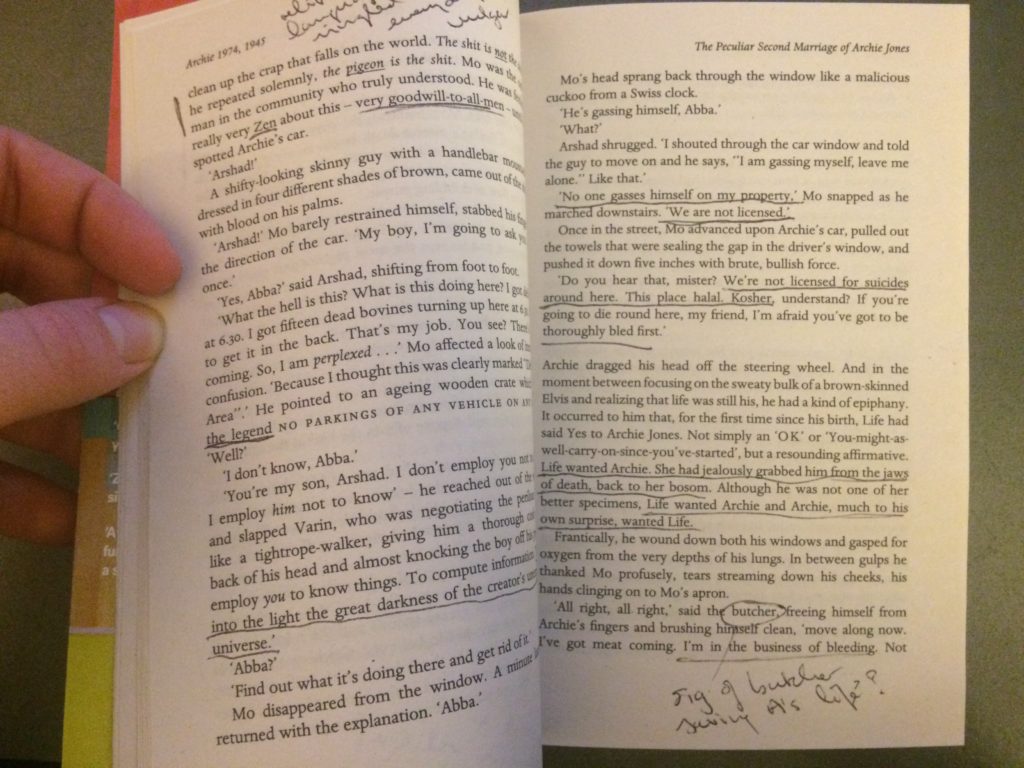I’ve always read a lot. I’m talking 20 books in rotation and blasting through 3 novels on a weekend. But whenever people asked me about a book I’d just read, I could rarely say more than whether I liked it or not. What a waste. An artist poured thousands of hours of dedication into a work and I spent hours consuming it only to be left with few significant thoughts about it.
After years of frustration, I put all my energy into ensuring that I actually remembered what I read. Reading for retention requires a different approach from what many of us are used to. It seems like a lot more effort but it’s actually a lot of fun and well worth the time invested. I know no better ways to retain more of what you read than the 10 steps listed below. Apply these steps and you’ll quickly discover yourself to be a proper reader – one you can talk at length about the wonderful books you have read.
How To Retain More Of What You Read
1. Read + Listen Simultaneously
There are A LOT of studies that show reading whilst listening to the material in audio format simultaneously boosts comprehension, speed of reading, and retention.
This is probably why Amazon developed their immersion reading by integrating Audible and Kindle.
It’s so easy to listen to a work and read it at the same time. I don’t know why more people are not utilising this method.
On a immediately tangible level I have noticed that simultaneous listening and reading has…
- Vastly increased my enjoyment of a story
- Made me read faster and read for longer stretches of time
- Increased my active vocabulary and corrected pronunciation of words in my passive vocabulary
On a more long-term level, I simply remember more of what I have read.
I remember whole chunks of story. I remember quotes. I remember plot lines, characters (even minor ones), and details that I otherwise would have overlooked. I also remember my thoughts, opinions, and emotions at different stages of the story and can better convey them when describing the work to others.
Here are a few works that I recommend listening to while reading (they have great narration):
This might seem like a kooky approach to reading at first but very soon you won’t want to read any other way. Sinking back into a comfortable chair at the end of a day with a good book in your lap and highly skilled narrators in your ear is a sublime experience.
2. Write Book Reviews
Book reviews are one of the best ways to consolidate and retain the information you have just read.
Book reviews force you to actively digest your reading experience. The act of writing makes your thoughts clearer. Don’t think you have any thoughts on what you just read? Well, book reviews force you have thoughts. You’ll quickly see that you do have opinions. They were just laying dormant and waiting to extinguish.
The books I can recall most vividly in my mind are the ones I have written reviews for:
- 7 Lessons Learned From Man’s Search for Meaning by Viktor E. Frankl (Book Review)
- 10 Things Writers Can Learn From Haruki Murakami’s Norwegian Wood
Writing book reviews is the best way of experiencing a nearly photographic memory.
My memory is butt of a lot of jokes because it’s so bad. But I can talk about Norwegian Wood or Man’s Search for Meaning as though I had the book right in front of my eyes. That’s the power of writing book reviews.
Don’t know how to write a book review?
Don’t worry. There’s no right or wrong way. It doesn’t have to be some 20-page epic. It can just be a few paragraphs or a few bullet points. If you’re stuck, ask yourself a few questions:
- What struck you about the characters?
- Did you notice any recurring themes that resonated?
- Was there any moment you particularly loved/hated? Why?
Those are great jumping off points. But really, just challenge yourself to write 10 things you noticed about the book you just read. There’s no right or wrong answers here. Even if it seems obvious, write it down. It might spark more complex thoughts later.
3. Take Courses/Watch Lectures On The Same Subject
Courses and lectures don’t have to be boring. In fact, the ones put out by The Great Courses are so fun that you will actually want to binge-watch them.
Whatever you’re reading, you are sure to find complimentary materials online that will enhance your readings.

Just read Crime and Punishment? Take a course on Russian literature and see how Dostoyevsky fits into the canon.
Just read Pride and Prejudice? Learn about how Austen’s work fits into the development of the novel.
Just read Norse Mythology? Take a course on world mythology.
You get the picture. You can get a greater understanding of what you just read by tapping into the knowledge of world experts. This also ensures that the book doesn’t end when you put it down. Your reading of it is part of an ongoing conversation. This ongoing conversation improves your retention as the book becomes part of your life.
4. Cross-Pollinate Your Knowledge
Knowledge that exists in isolation is bound to disappear.
But knowledge that hooks onto other knowledge is super sticky.
You should be reading lots of different stuff at the same time. And while you’re reading one thing, think about how it fits with other things you have read.
- Go to art galleries
- Go to the theatre
- Visit new places
- See new movies
All the while, try to connect the things you are reading with the world around you.
I’ll give you an example of how this works. I’m currently reading a biography of Theodore Roosevelt. It’s a great book. Brilliantly written. I think the author won a Pulitzer. And Roosevelt is an outstanding man.

My understanding of Roosevelt grew when I was out walking through nature. I was looking at all the birds and the different flying insects and thought about how Roosevelt was a keen biologist. He would study wildlife and write down his impressions of different species. So I started to wonder what kind of mind one must have to be drawn to that sort of activity. How did Roosevelt’s intense drive to catalogue and study aid him in his political career? How could I utilise that same drive in my own life?
Thinking in this way makes it much easier to retain what you’ve read because, once again, it becomes part of your life.
5. Deface Your Books
I used to hate lending my books because they would invariably come back with cracked spines and dogeared pages.
When I went to Oxford, the tutors implored us to scribble all over our books. I remember tentatively annotating my copy of Wuthering Heights and feeling so guilty for marking the page that I vowed to keep my books pristine forever and confine my thoughts to a notebook.
But now I’ve learned that the proper way to read a book is to completely deface it.

Use book flags, stickers, and cover the book with ink. Underline your favourite passages, circle recurring themes, scrawl half-formed thoughts in the margins, create an index in the front and back, and generally just make your copy a beautiful mess.
Do not feel guilty about writing in your books. Every single author who has ever lived would be flattered to know that someone is studying their words with such scrutiny and giving their work such importance that they cover the pages with annotations.
Writing all over your books massively increases your retention because you feel like you’re having a conversation. You’re becoming an active reader who pays attention to what is transpiring rather than letting it unfold and disappear before your eyes.
6. Talk About Your Books
Talking about what you have just read gives another valuable layer of understanding and appreciation to your reading.
If you can talk about what you read, you can remember what you read.
Talk to everyone you meet about the books you are reading. Friends, enemies, loved ones, hated ones.
Even small-talk and chit-chat with random strangers can turn into a mini-bookclub.
Next time you’re taking a taxi, try and steer the conversation into something you have just read. Taxi drivers have a completely unjustified stereotype of being uneducated. Maybe it’s a class thing where the so-called “elite” can’t imagine anyone with a working-class accent could have an opinion on art. But I’ve had better conversations about books, movies, and music with cab drivers, construction workers, hairdressers, and cleaners than I had with many of my peers at Oxford.
Another reason people don’t talk freely about books and art with random people is because they’re worried they’ll be viewed as a “nerd” or not down-to-earth. But in my experience, if you talk to people as though they are intelligent, they will show themselves to be intelligent and will have wonderful opinions. Many people are thankful that they get to talk about something more interesting than the common fare.
You should also join a book club. Either find one in your area or join an online one. Reddit has a great book club. It’s not too crowded but there’s a community there and its filled with literature lovers who will help you engage with what you’re reading.
7. Teach Your Books
One of the best ways to consolidate and retain information is to teach that information.
We did this at university all the time. I often wouldn’t be able to grasp a concept fully until I tried to teach it to someone else. Then I would have a lightbulb moment and that knowledge was secure in my memory.
You can teach people about what you’re reading in your own day-to-day life. Start by talking about what you’re reading and, if there’s interest but little understanding, take advantage and try and teach the information.
If you have younger family members, you could offer to help with their homework.
If you fancy a new side hustle or you want to improve your public speaking, you could record a series of lessons and put them out into the world. What’s stopping you from making a YouTube video or podcast about what you just read?
8. Cardio + Reading + Listening
I recently got one of those Fit Bits and it’s constantly nagging me to work out and walk more steps.
I was shocked at how long it actually takes to walk 10,000 steps a day!
You’ve got to do something during that time, so I will often listen to an audiobook while my blood is pumping.
My favourite way to begin the day is to hop on the stationary bike, pop an audiobook on, and read along with the Kindle app at the same time.
I don’t even notice where the time has gone because I’m so immersed in the story.
I kill two birds with one stone. I exercise my body and I exercise my mind and I’m set up for an awesome day.
9. Argue With The Author
Pretend that the author is trying to teach you something and you want to get more out of it by asking questions. Kind of like a socratic dialogue.
Scribble those questions in the margins of your books.
The author can’t answer you. Obviously. But the very act of asking the question means your mind is going to start working on unravelling the subject and trying to deliver an answer.
A book is a conversation. It’s not a monologue (though it looks like one). The reading experience shouldn’t be one of the author bludgeoning you with a wall of text and you unblinkingly accepting it all. Question everything you read along the way and you will get a lot more out of your reading.
10. Re-read Your Books
If you’ve been scribbling in your books and you’re set on writing reviews, you’re going to re-read your books anyway. You’ll look back at the most striking passages and that will help your brain absorb what you’ve read again.
If you really enjoyed a book, you should at least flick through it again after reading.
You should also consider adding it to your long-term re-reading list.
For example, Heart of Darkness is one book that I return to every couple of years. I also do the same with many Shakespeare plays (particularly King Lear). This returning allows the book’s message to mature and you’ll always find something fresh on your next reading, something that may even contradict your first reading.
That’s How You Retain More Of What You Read
Give these steps a shot with the next book you read. I can assure you that you will thoroughly remember that book and you will probably enjoy it much more than any other book you’ve read “normally”.
What about you? Do you have any tips for retaining more of what you read? Let me know!